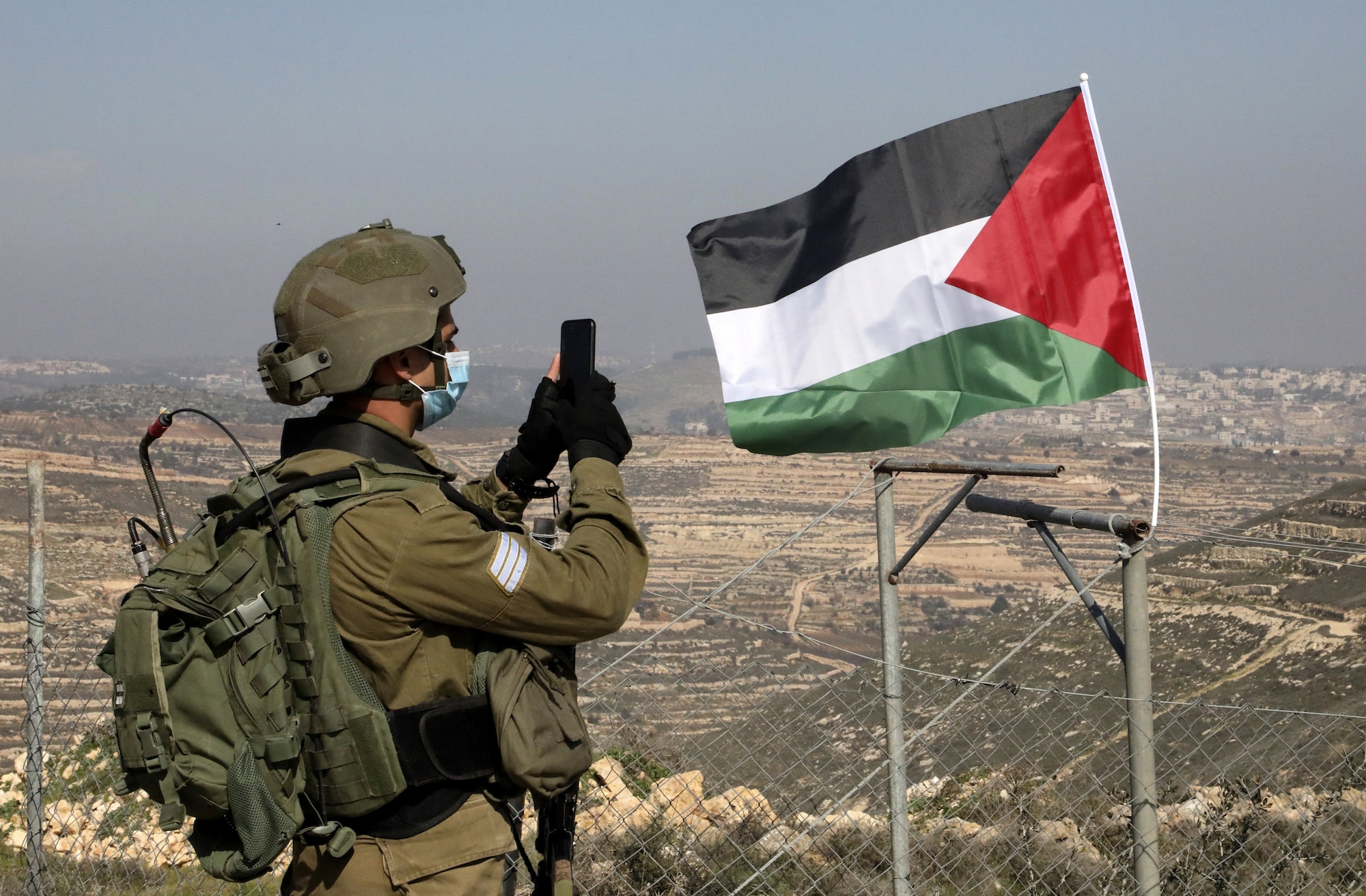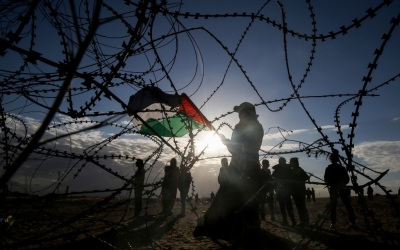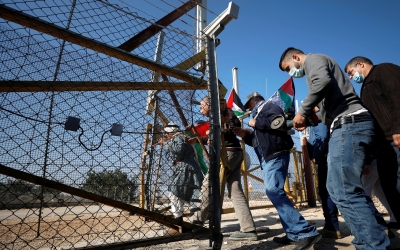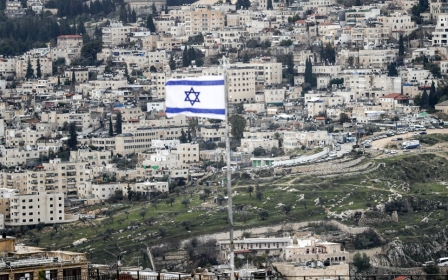Israel is an 'apartheid' state, says the country's leading human rights group

Israel is an “apartheid” state operating to advance “the supremacy of the Jews over the Palestinians”, a leading Israeli human rights group said on Tuesday, breaking from the consensus, even among Israel's left, that the country is a democracy.
In an eight-page report entitled “A regime of Jewish supremacy from the Jordan River to the Mediterranean Sea: This is apartheid”, B’Tselem described all of present-day Israel and the occupied Palestinian territories as being organised “under a single principle: advancing and cementing the supremacy of one group - Jews - over another - Palestinians”.
“By geographically, demographically and physically engineering space, the regime enables Jews to live in a contiguous area with full rights, including self-determination, while Palestinians live in separate units and enjoy fewer rights.
“This qualifies as an apartheid regime, although Israel is commonly viewed as a democracy upholding a temporary occupation,” the report stated.
'Israel has no interest in moving away from the ongoing apartheid reality'
- Hagai El-Ad, executive director of B’Tselem
B’Tselem identified key methods Israel has adopted to “divide, separate and rule” over the Palestinians, who have rights “inferior” to those afforded to its Jewish citizens.
New MEE newsletter: Jerusalem Dispatch
Sign up to get the latest insights and analysis on Israel-Palestine, alongside Turkey Unpacked and other MEE newsletters
"Jewish citizens live as though the entire area [under Israeli control] were a single space (excluding the Gaza Strip). The Green Line means next to nothing for them: whether they live west of it, within Israel's sovereign territory, or east of it, in settlements not formally annexed to Israel, is irrelevant to their rights or status," the report read, referring to the line meant to separate Israel from the occupied territories.
“Where Palestinians live, on the other hand, is crucial. The Israeli regime has divided the area into several units that it defines and governs differently, according Palestinians different rights in each. This division is relevant to Palestinians only. The geographic space, which is contiguous for Jews, is a fragmented mosaic for Palestinians.”
The report also pointed out the laws and actions implemented by Israel, such as confiscating Palestinian lands for the benefit of settlers, restricting Palestinians’ freedom of movement, and denying Palestinians’ right to political participation - amount to violations of human rights.
Executive director of B’Tselem, Hagai El-Ad, called for an end to Israel’s “immoral and systematic promotion of the supremacy” of one group over another.
He said that unlike apartheid in South Africa, which was based on skin colour and widely condemned, the application of the Israeli version “avoids certain kinds of ugliness” by operating under the euphemism of “protecting the Jewish character” of a community.
The terms that have been used to describe the situation - such as “prolonged occupation” or a “one-state reality” - are no longer adequate, said B’Tselem, and its report aims to “examine and define the regime that governs the entire area” in order to fight human rights violations effectively.
Pro-Palestine activists and scholars have long denounced the Israeli occupation as an apartheid system - but in Israel, where leftist voices are marginalised, such discourse is often dismissed as antisemitic.
Holding Israel accountable
According to El-Ad, there are two key factors that have enabled Israel to continue on its current course - the absence of meaningful consequences to Israeli policies, and the huge imbalance of power of Israel over Palestinians.
“Israel has no interest in moving away from the ongoing apartheid reality,” he told Middle East Eye.
The current situation is not the result of a lack of alternatives - be they in the form of one, two or more states, El-Ad explained.
“Israel has successfully branded itself as a democracy, it enjoys all the benefits of being a member of that club of states (by way of special relations, trade agreements etc.), and thanks to the American veto it insulates itself from Security Council resolutions," he said.
'Leverage is not lacking. Political will on the part of main actors in the international arena is'
- Hagai El-Ad, executive director of B’Tselem
"Impunity is the norm, and until it changes – there’s little reason to expect a change in Israeli policies.”
B’Tselem has been calling for decisive international action to change Israeli policies towards Palestinians for some years now, said El-Ad, adding that international pressure can come in many forms.
“Leverage is not lacking. Political will on the part of main actors in the international arena is.”
He singled out the United States as “the key underwriter of Israeli policies for decades”, and called for the incoming administration of Joe Biden to “take a drastically different position and – finally – align US foreign policy with advancing human rights in Israel/Palestine, rather than continue to undermine them.
“But that pressure is necessary and is the only non-violent path if we are to progress beyond this reality and towards a more just future,” said El-Ad.
B’Tselem's move to identify Israel as an "apartheid" state comes after its latest report presented "sufficient evidence that the threshold has been crossed”, said the group's spokesperson.

Amit Gilutz pointed to two events in recent years that were important in exposing the nature of Israel's governance.
“The Nation State law, which enshrines the principle of Jewish supremacy into the Basic Law (the closest thing Israel has to a constitution); and, the open talk about de jure annexation of further swaths of the West Bank, showing, if there was still doubt, the long-term intentions of the regime - to perpetuate supremacy.
“This is the reality Palestinians are subjugated to,” said Gilutz.
“We do not say in our analysis at what point in time exactly did the Israeli regime become an apartheid regime. Probably, there never was a single such moment. Rather, this was a layered and complex process which took years.”
Middle East Eye delivers independent and unrivalled coverage and analysis of the Middle East, North Africa and beyond. To learn more about republishing this content and the associated fees, please fill out this form. More about MEE can be found here.





